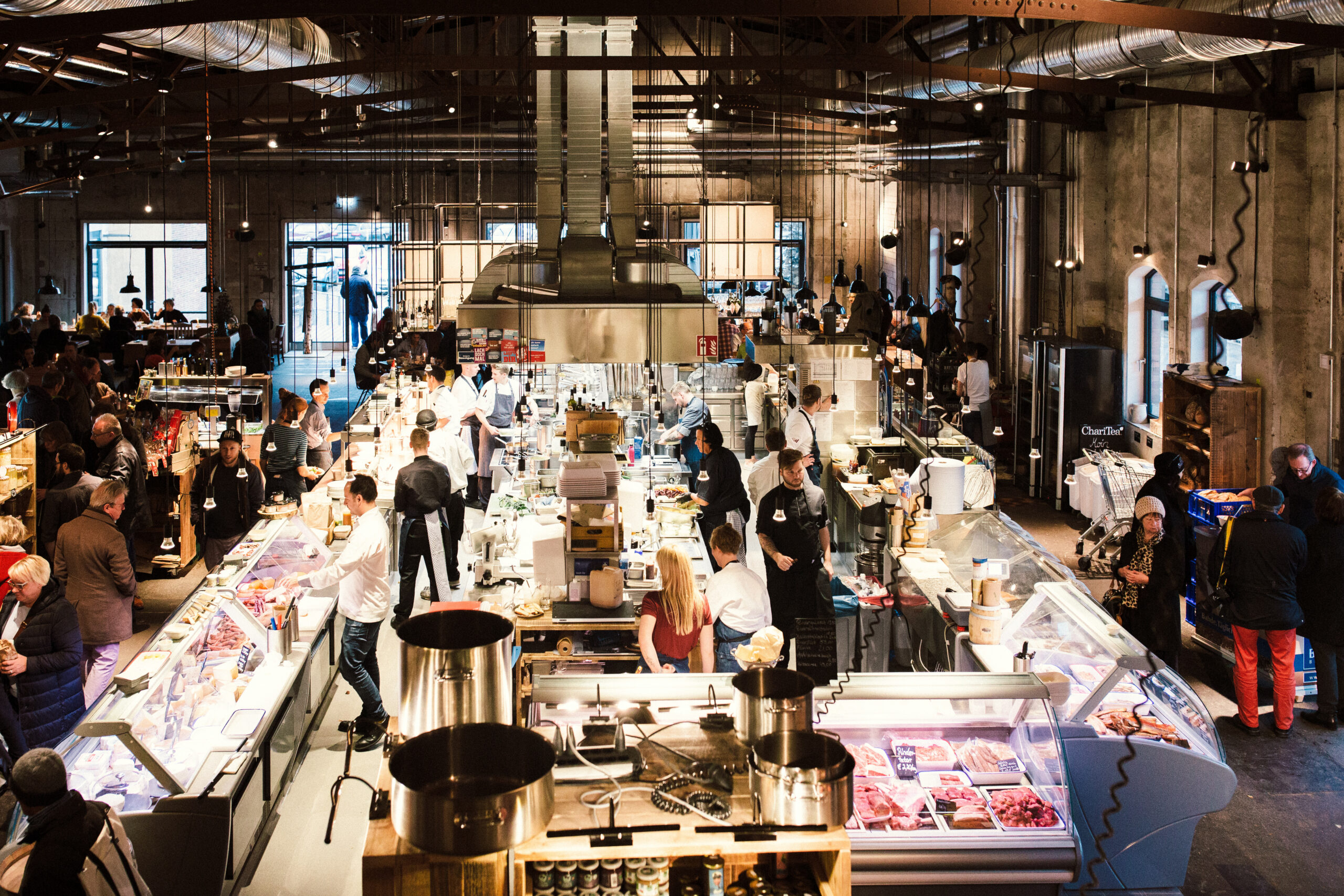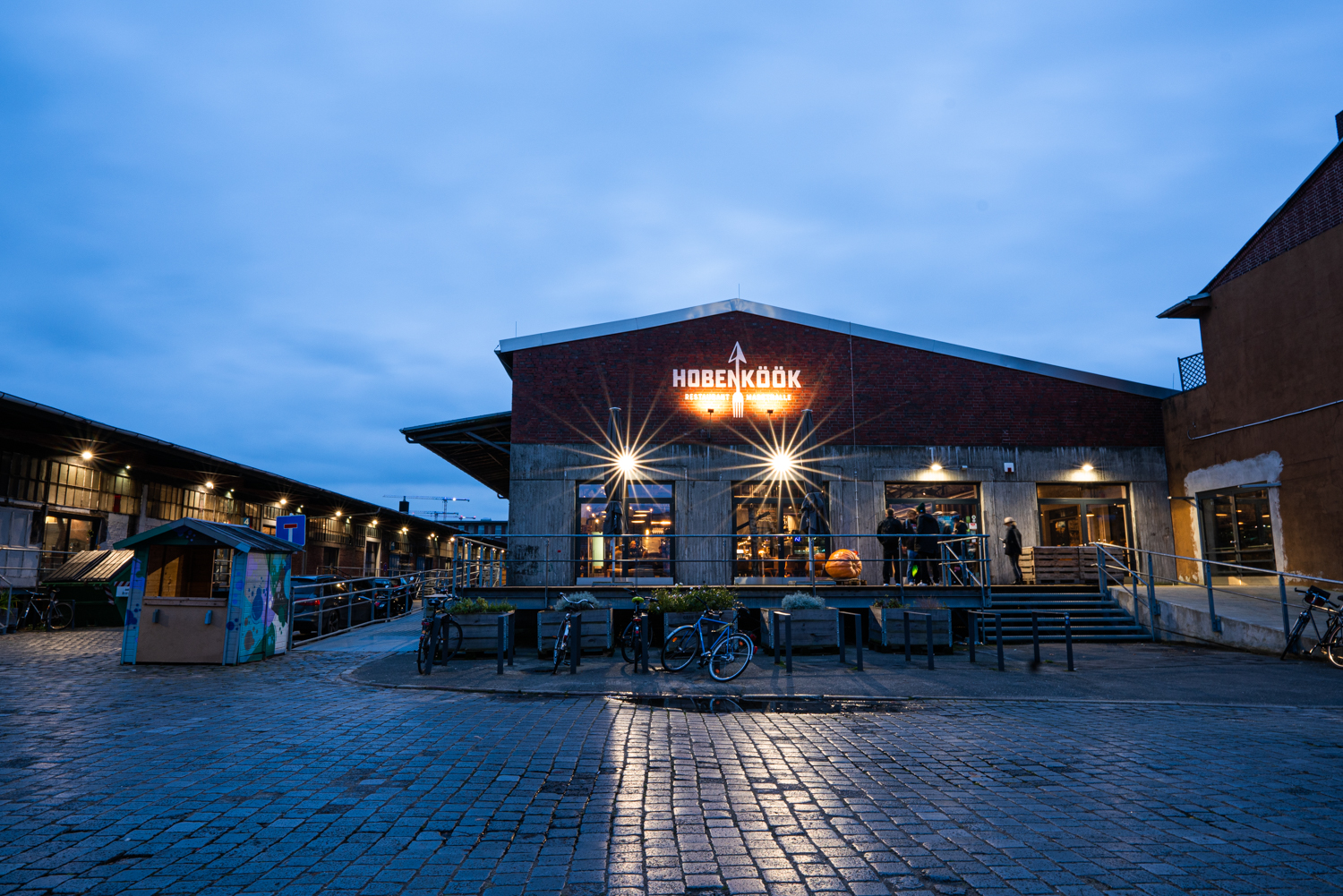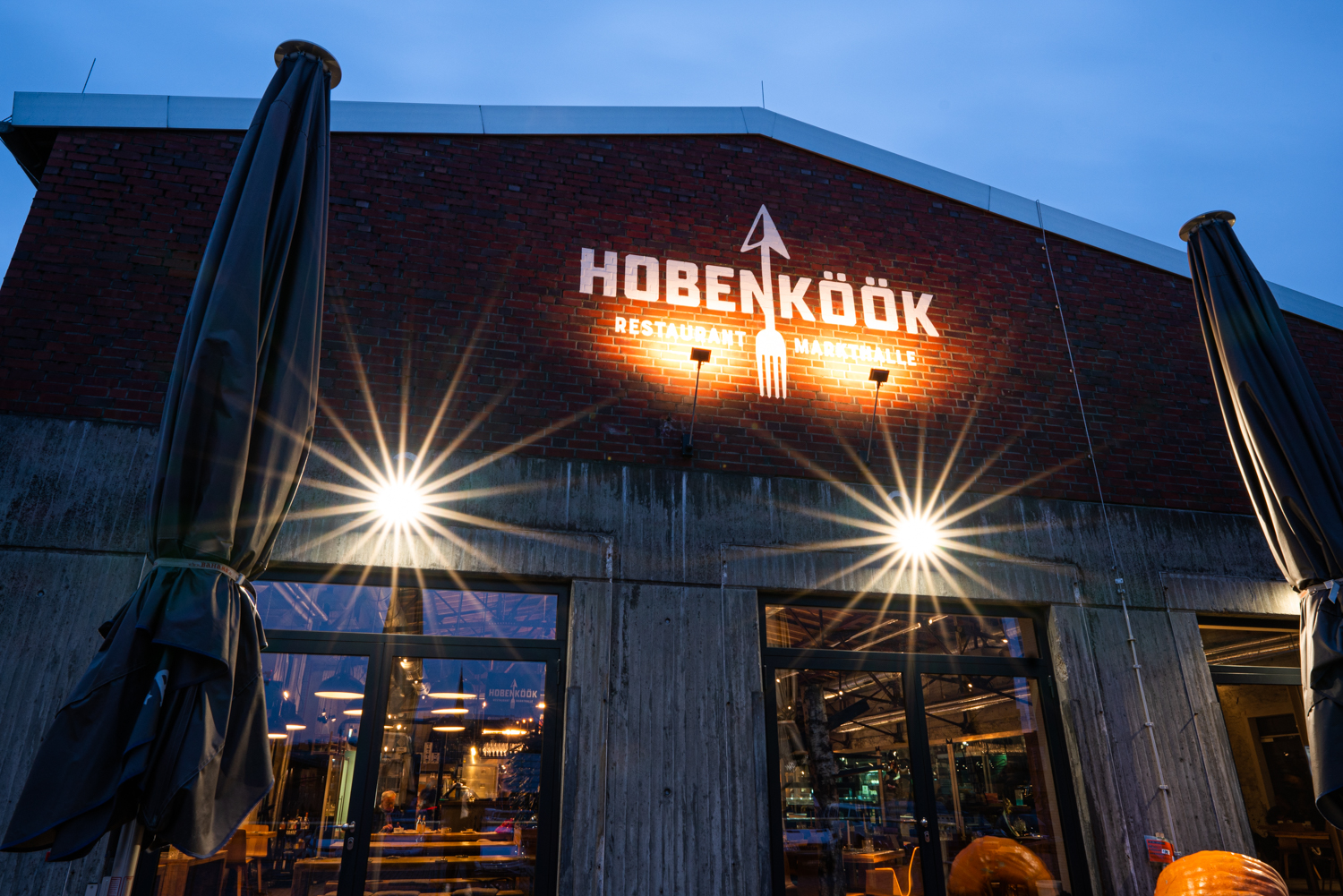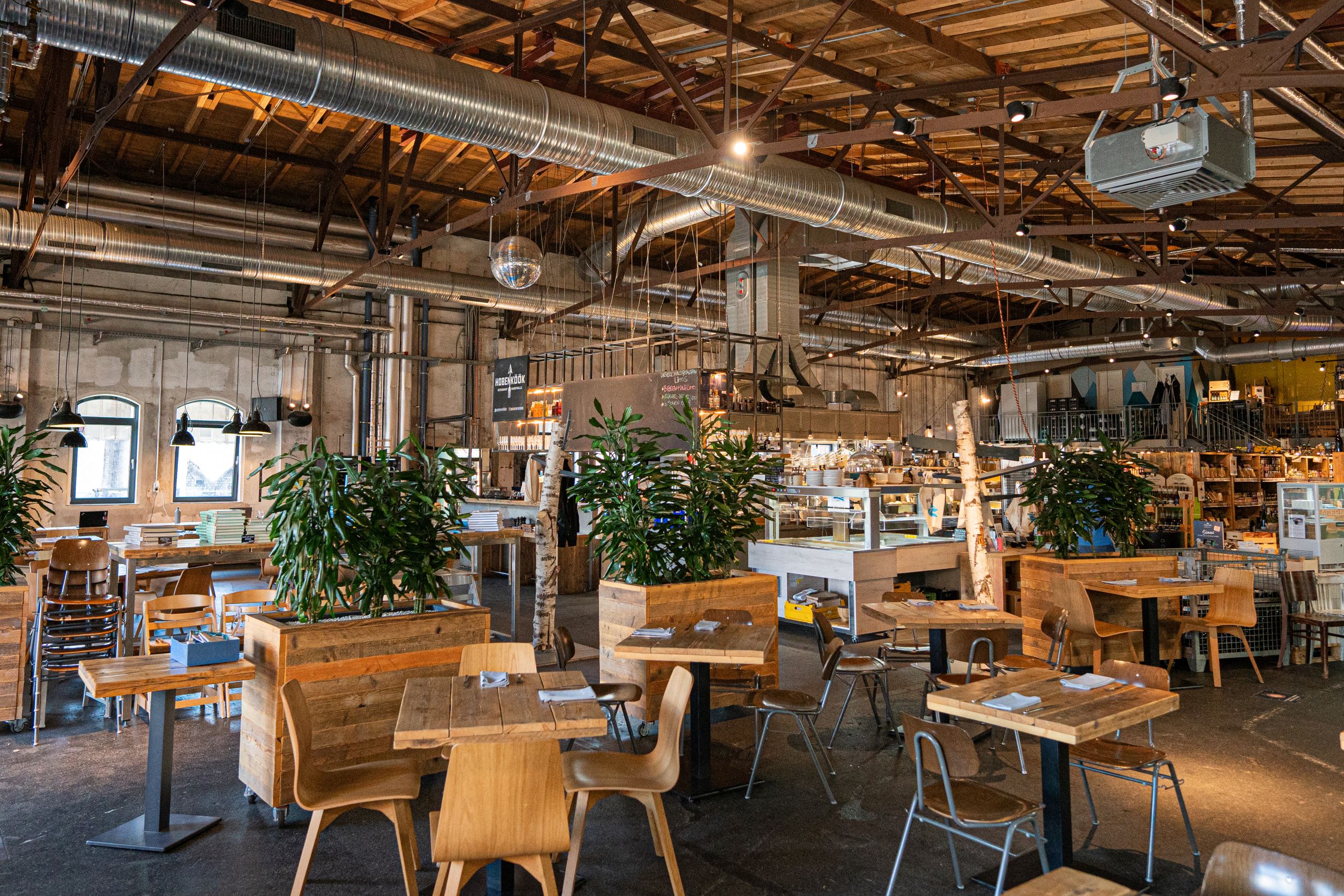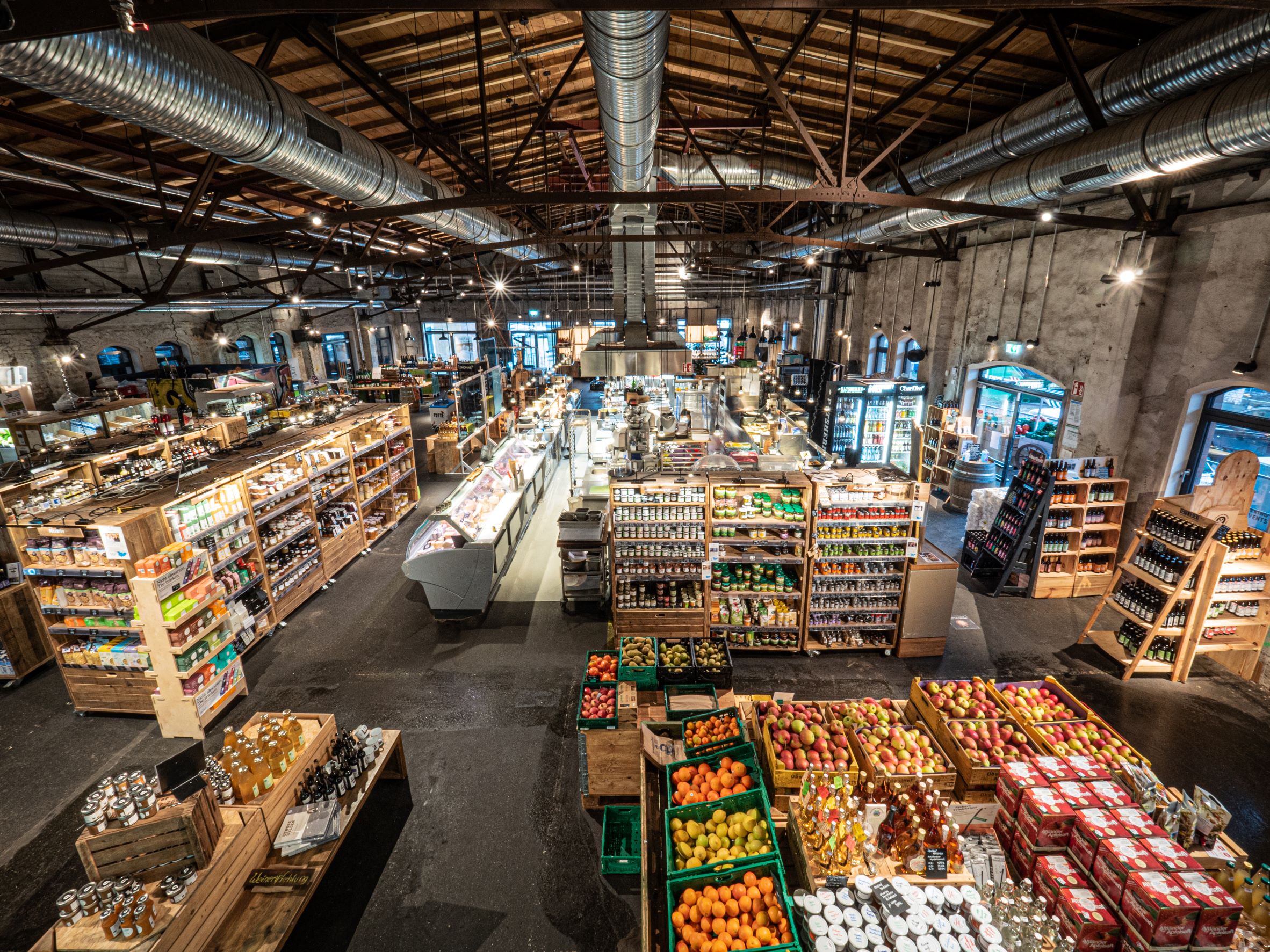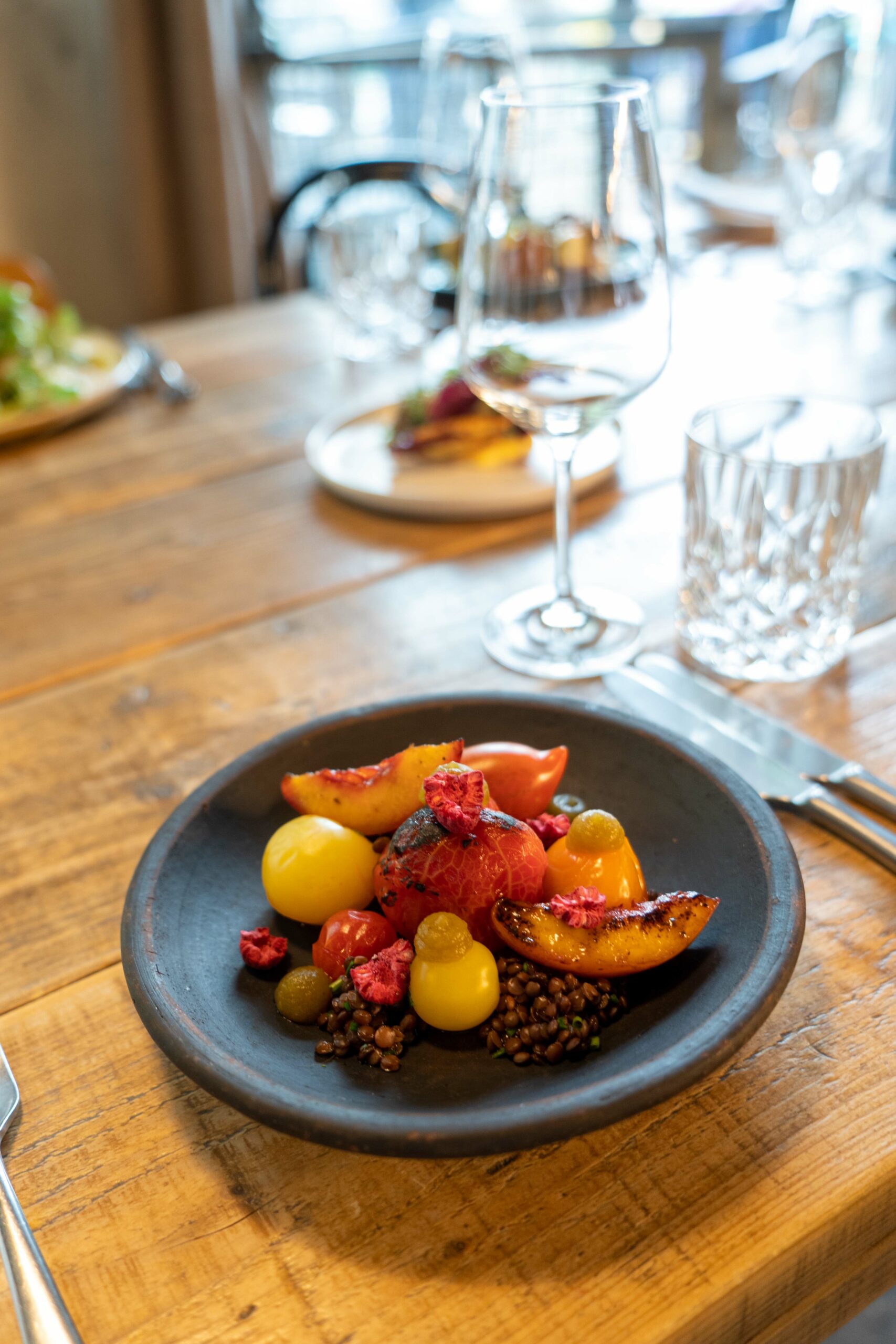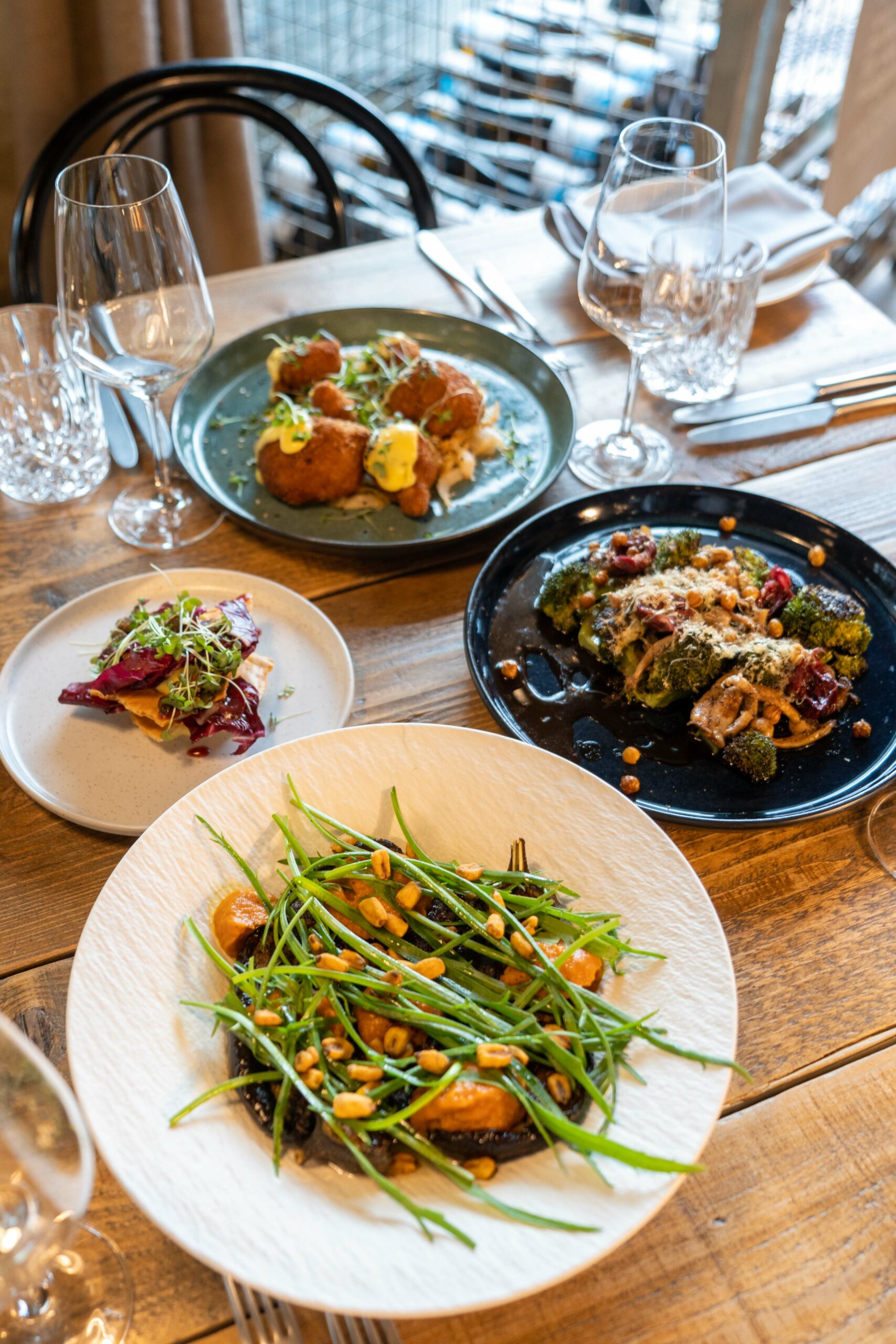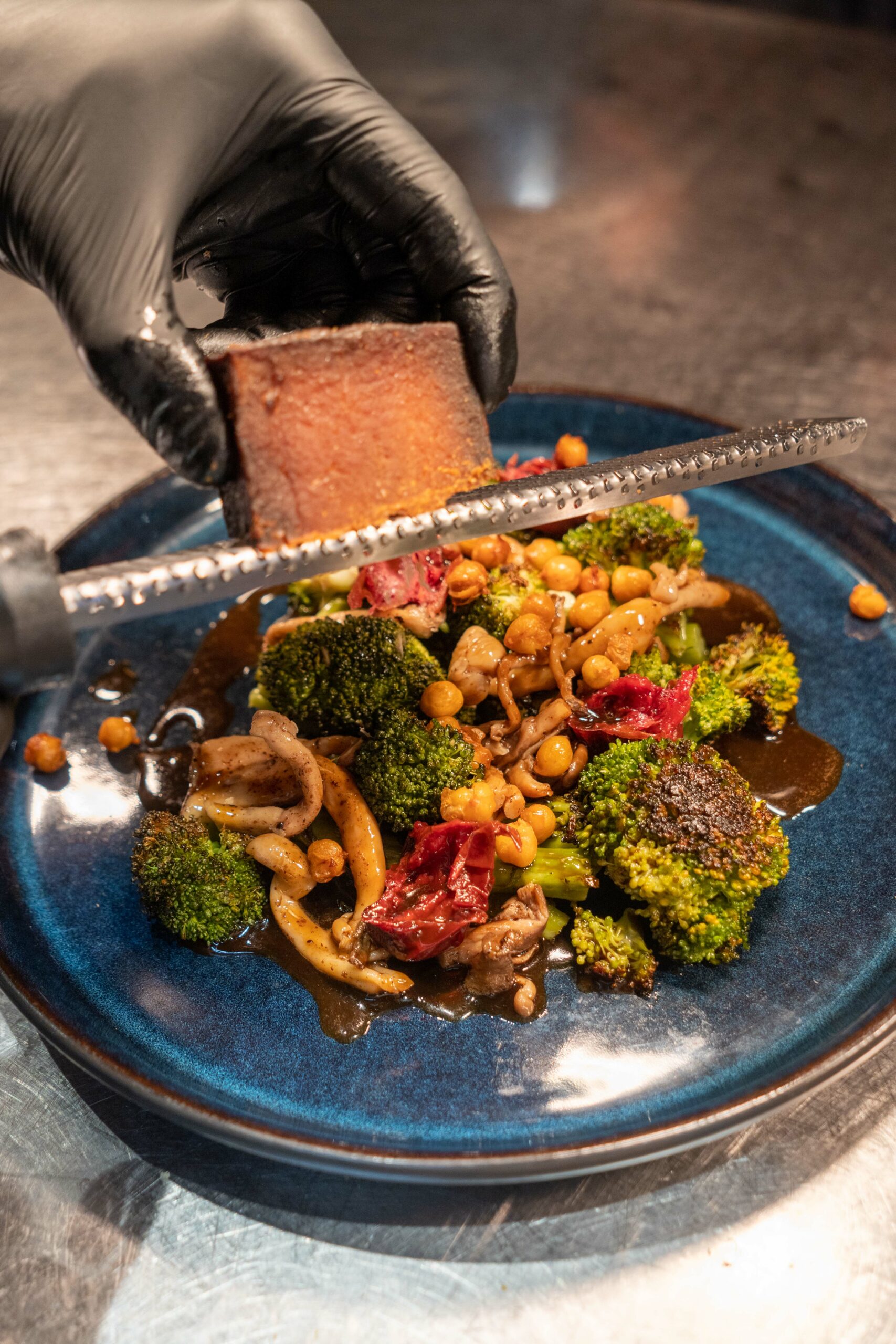Hobenköök
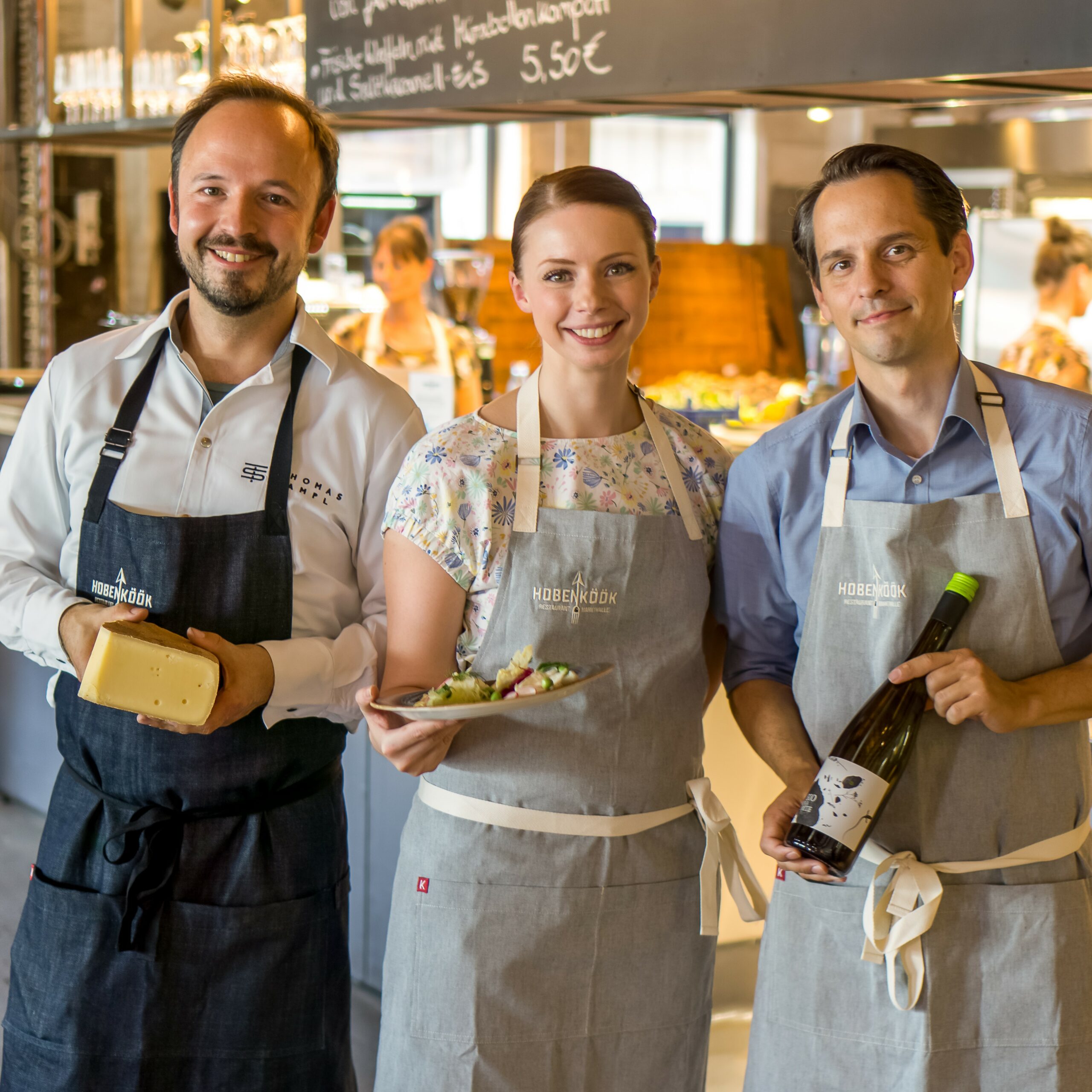
As a market hall with restaurant and catering, Hobenköök is a diverse culinary venue. What was the motivation behind starting the company?
The goal was always to create a place where pure food can be bought or traded, directly from the producer and without middlepeople. We were also driven by the principle of a holistic circulation system that guarantees that even the food that did not make it from our market hall to the consumer is used at all times. Therefore, our chefs process leftover products and food in our restaurant on a daily basis. Often spontaneously, which makes the whole thing all the more exciting and appealing. In doing so, we have always focused on offering pure food that tastes the way it has always tasted and should continue to do so. All of this in surprising combinations and preparations that make this place and Hobenköök very special and unique.
How do you define regionality and how important is it for your work? How important is Hamburg and the metropolitan region as a location for you?
Regionality is particularly important to us. Focusing exclusively on Hamburg would not have been sufficiently attractive or economical due to the relatively small agricultural area and the limited product range. Nevertheless, 80% of the 2,500 products for sale come from the metropolitan region. The region around Hamburg has a lot to offer, so there is hardly anything we are lacking.
“Of course, it’s a daily challenge to create dishes spontaneously and flexibly and to stick to the holistic utilisation of all food at Hobenköök.”
What challenges do you face when you use only products from the market hall in the restaurant? How do you deal with food waste at Hobenköök?
We live zero waste. All products that are not traded in the market hall are processed the next day by our chefs at lunch or dinner or end up in breakfast. Flakes or seeds in the granola, yoghurt in the salad buffet. This also means that components of the menu are not fixed and are listed as “vegetables from the market hall”. Of course, it’s a daily challenge to create dishes spontaneously and flexibly and to stick to the holistic utilisation of all food at Hobenköök. But this is exactly what makes the work of our chefs all the more versatile and also our customers are happy about the concept and enjoy getting involved with the creations.
In line with the zero waste concept, we also ferment our organic vegetable waste in a particularly sustainable way using the Bokashi process. Responsible for this is our kitchen director Martin, who sells his super fertiliser “Babokashi” online and at the Hobenköök and helps gardeners to achieve particularly high harvests and healthy plants.
What aspects are important to you when choosing new products for the market hall? How do you maintain relationships with your suppliers? Do you have collaborative projects or plans?
With many of our suppliers, we are organised through the Regionalwert AG, whose channels and platforms we use to keep in constant contact with each other. We meet regularly and have already made a number of joint plans or faced a number of challenges. In addition, we also use “Slack” as a communication tool. Here, suppliers and buyers can get in touch with each other quickly.
New products reach us often and a lot. First of all, they are tasted by our staff. Afterwards, we discuss the production process and how the individual components are purchased and processed, how the company is structured and whether the producer conforms to our values.
In your opinion, what are the most important issues that need to be addressed in the coming years within the catering industry or in the food industry in general? What responsibility do you see for Hobenköök in this context?
In terms of sustainable & regional gastronomy, with a market hall concept, Hobenköök has always been a trailblazer. For many years, our concept and Thomas’ visions were often ridiculed and not taken seriously. However, due to global crises and the challenges of our time and generation, the need for regional supply is manifesting itself and alliances are forging ahead. This is happening in favour of the climate, small farms and original diversity and is leading to an increasingly influential change in consumer attitude. We are happy about this development, but there is still a long way to go. We will expand our network and also create more locations that will bring consumers closer to our approach and our values and enable them to experience them. Our concept will certainly find imitators and more and more restaurateurs and restaurants will source regional products, as is the case here in Hamburg.
